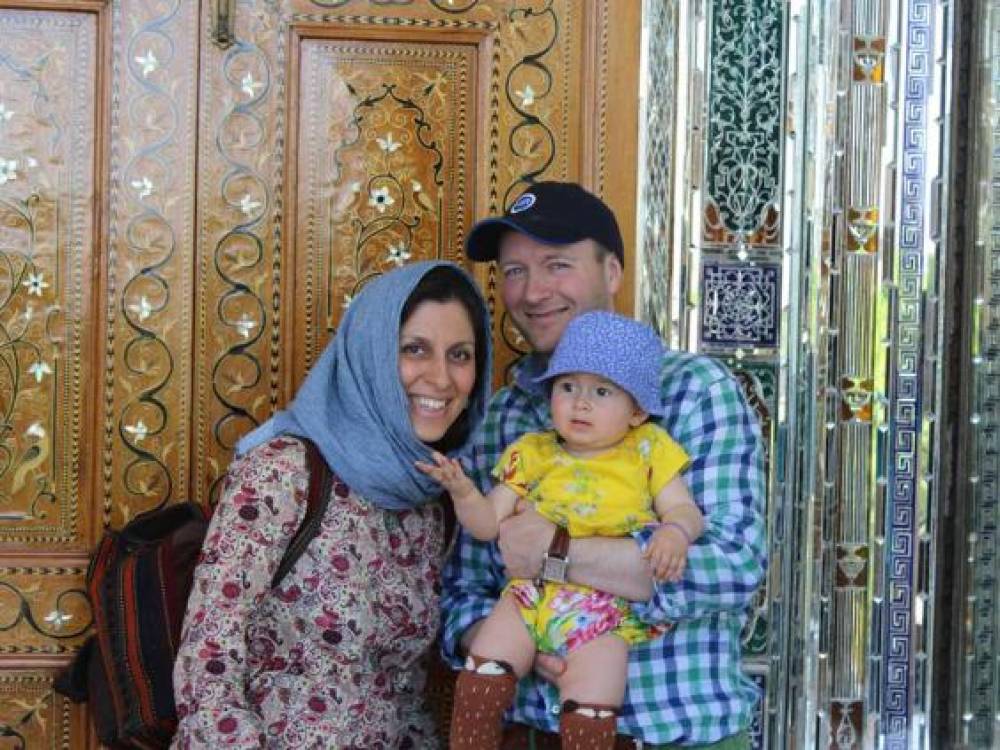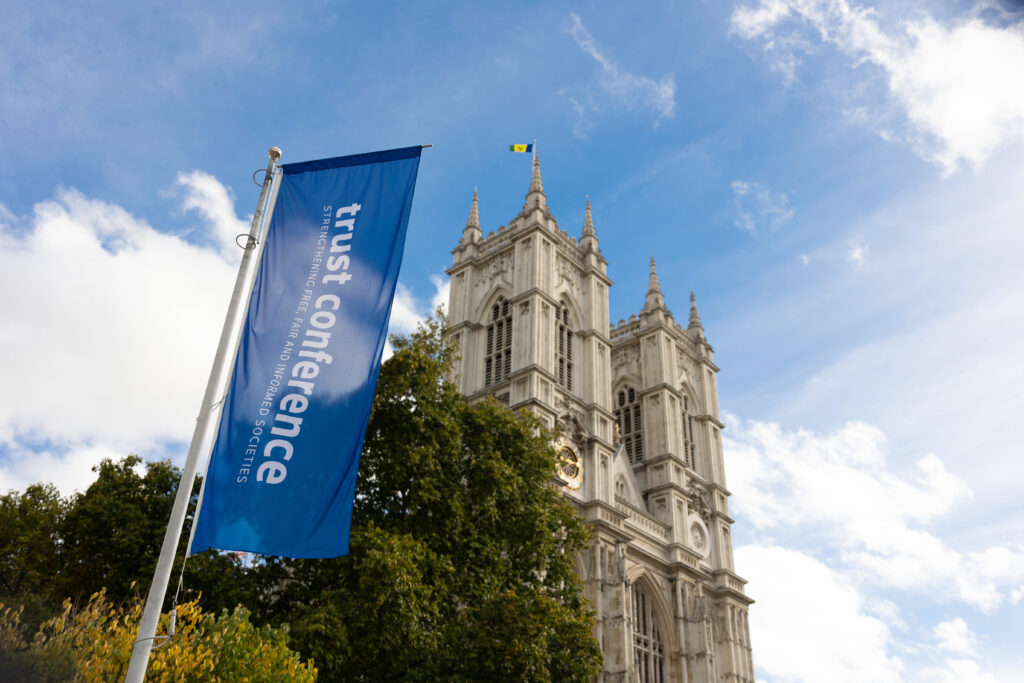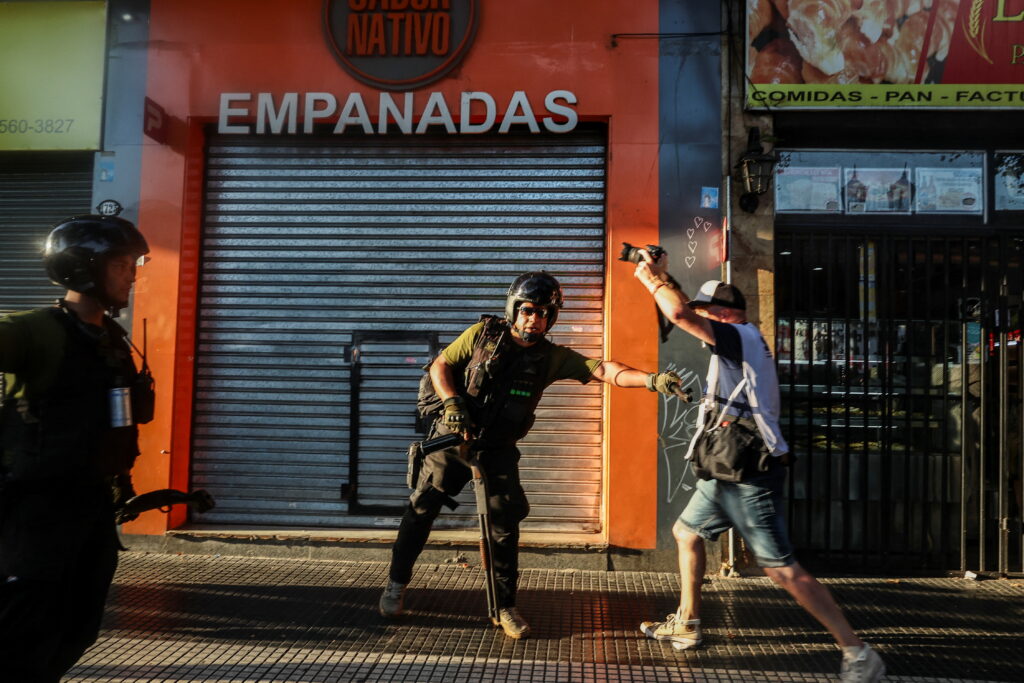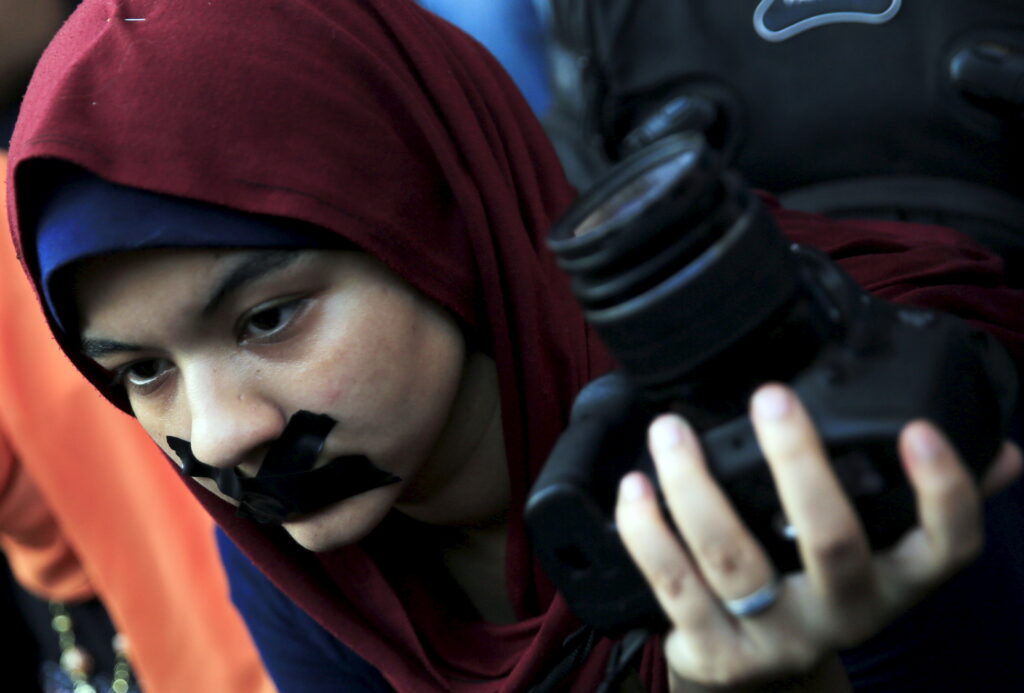
It is outrageous that Nazanin was yesterday told by the Iranian Judiciary that the reason why she is still behind bars in Evin Prison in Tehran is because “of a continuing dispute between UK and Iran over the interest rates used to calculate the present value of its historic debt”.
This is obviously an issue that could be solved very quickly by the British Government.
Why must an innocent woman who is fighting for her freedom – after almost 23 months in jail – have to remain separated from her husband and her young daughter Gabriella because of a dispute over interest rates between the British and Iranian Government?
Judge Abbasi, the Judge of Judicial Affairs in Evin Prison, has said that it is now in the hands of the two Foreign Ministries. Nazanin is clearly now a political token. He told her that she is “not a normal prisoner” and he apologised twice for “the many injustices made in her case”.
After putting her in this situation by his erroneous comments, Boris Johnson, the UK Foreign Secretary, said last November he would do everything possible to secure Nazanin’s release. But what is he doing now?
As the employer of Nazanin Zaghari-Ratcliffe, I demand Boris Johnson act immediately. She could be freed tomorrow if the dispute over the interest rate question were resolved.
Monique Villa, Thomson Reuters Foundation CEO
Nazanin still held in prison over disputed interest rate calculation
Yesterday (21 February) Nazanin was taken to meet the Judiciary where she was again encouraged to move with Gabriella under special house arrest, rather than receive standard furlough. The Free Nazanin Campaign reiterates to both governments that this arrangement would not be acceptable to Nazanin or her family.
The Judiciary representative also told Nazanin that her ongoing imprisonment is due to a continuing dispute between the UK and Iran over the interest rate used to calculate the present value of its historic debt. The Iranian side of this dispute is handled by the Iranian Foreign Ministry.
Iranian Deputy Foreign Minister Araghchi is due to speak today at Chatham House on Iran’s foreign policy priorities. We ask that he clarify how high a priority protecting Iran’s dual nationals is when they travel to Iran, and what stones still need to be unturned in Nazanin’s case.
Discussion with Evin Court
The Free Nazanin Campaign notes that yesterday 21 February at 10.45am, Nazanin was taken to meet the Judiciary at the Shahid Mooghaddasi Court, inside Evin Prison, known to the prisoners as ‘Evin Court,” where she met with Judge Abbasi, the Judge of Judicial Affairs in Evin prison.
Judge Abbasi is typically responsible for signing off applications for prisoner furlough or conditional release. It is his duty to monitor the status of prisoners – whether they are eligible to go on parole. Accordingly, he also confirms whether prisoners have observed Evin prison rules.
The Moghaddasi Court is also the Court where Nazanin’s family had to go to put down the extra bail to stop her being put back into solitary when the second court case against her was invented. The Judge has always been civil with Nazanin and her family.
Following her visit to her psychiatrist on Saturday (17 Feb), Nazanin had sent a letter requesting to meet Judge Abbasi, to discuss the progress of her numerous furlough applications. The meeting also coincided with the visit of the Iranian Deputy Foreign Minister to London, and a delivery event to the Iranian Embassy (see below).
The Judge took Nazanin in, asked the Guards to wait outside, and shut the door. Nazanin’s lawyer was not present. The meeting lasted an hour, and discussed a number of topics.
Subsequently, Nazanin had a family visit yesterday where she updated her family on the conversations below:
Proposal to move under House Arrest
The Judge asked Nazanin: “Why did you request this meeting?”
She said: “I want freedom. Or I want furlough, then freedom to come on conditional release.”
He said: “Sepah [IRGC] is concerned that if we send you on furlough, you will not come back to prison afterwards, that you will try to stay out of prison until it is time for your conditional release, or that you will try to take your baby and leave Iran.”
Nazanin responded: “Of course I do not want to go back to prison if you send me out on furlough. But my passports are with you, I cannot just leave. I cannot cross a border illegally with a baby. I have to think about my family.”
The Judge explained that instead he had suggested Nazanin be granted furlough in a secure house, and that he would send her there with Gabriella as a solution. Nazanin responded: “A secure house would be a prison for my baby. My daughter cannot stay in guarded house without my family. She is used to them.”
He assured: “We will sort it out so that you can see your family.”
“No,” she said, “It is my parents’ house or nothing.”
He countered: “But we are responsible for your security and safety. If we let you out, and something happens to you – we are responsible.”
“Like what?” she asked. “Who am I to make such a big thing out of? Are you implying someone is going to try and attack me? Why would they?”
There was no response. “Sheer nonsense,” Nazanin reflected afterwards to her mother.
The Judge asked Nazanin to think about the house option three or four times. He asked her to think about it for his sake, and that it would be a good step to start Nazanin promised to discuss it with her husband and family and also with her lawyer. She noted later that Nowruz is coming: “They will be ashamed if they are still keeping me in prison for the beginning of a third year. That is why they suggest this now”
Nazanin has also instructed her family to tell the British Embassy that there is no way she would accept special house arrest for her and her daughter. Nazanin’s husband is firm in his view that this kind of house arrest is not a viable option for them both.
Interest Rate Dispute
Nazanin asked: “What is going on with the Ministry of Foreign Affairs – why are they now handling the case?”
Initially the Judge played dumb, then finally he revealed, as the Deputy Prosecutor had to Nazanin before, that her continued imprisonment related to the non-payment by the UK of an historic debt.
See: https://www.thesun.co.uk/news/4915082/nazanin-zaghari-ratcliffe-iran-release-demands/
Nazanin asked: “I don’t get why the UK is not paying it off, when they have said that they recognise the debt.”
Judge Abbasi told Nazanin: “The British have accepted to pay the historic debt, but there is still a dispute over calculating the interest rate. It is the Ministry of Foreign Affairs that is finalising with the UK the calculation of the interest owed on the debt.”“Who would take a mum and a baby hostage to get money?” she asked bitterly. “That money is Iran’s right,” he responded.
She said: “I know. And even my husband was very clear that the UK should pay its debts. Regardless of what they have done to us.”
Consular Access: Phone Calls
The Judge also discussed with Nazanin consular access, and phone calls from Embassy. He asked her: “Have you ever called the UK embassy from prison?”“Never.” Nazanin responded. “I would have loved to, but I promised not to. Even though often I wanted to shout at them for doing nothing on my case.”
He said: “So you can write a request for permission to call the Embassy from here. Write a request letter to see if it is possible.” He was not sure it would be allowed.
Not a Normal Prisoner
The Judge also noted that Nazanin was not being treated as a typical prisoner: He said: “You cannot compare yourself with normal prisoners.”
She said: “I know. I haven’t done any interviews while I have been in prison. I haven’t written any harsh public letters. I have not had any fights in the ward, and have not gone ranting and swearing at the guards. Do you think I wasn’t able to do that? Have you seen any petitions coming out of the ward with my signature on them?”
He said: “No.”
“Isn’t that enough to show that I am not treated the same as other prisoners? Even if I had done all these things, I would still be in here now.
“You will never give me parole or furlough on the basis of my good behaviour. Only when you get that damned money.”
Nazanin was also informed that she will be handed over to the MFA when they want to release her. They will not allow her to leave the prison and go to her father’s like a normal prisoner, but will deliver her to the UK Embassy, direct onto a plane home.
Challenge to Faith
The Judge also questioned Nazanin about the impact her imprisonment had on her religious faith. He said: “We have found you a very moral person.”
She countered: “I have found you all only to be pretending at being practising Muslims. It is inhuman to keep me and my young child for your purposes.”
He said: “You are right. I have nothing to defend myself. There have been many injustices in your case, from the beginning until now, and I apologise for them. I have done my best to send you on furlough or conditional release. But so far I could not.” “I have told Sepah [IRGC] that they should not behave in a way that when we deliver her to the Foreign Ministry, we are ashamed by the way we have hurt her.”
She said: “You have crossed that line already. Have you not seen my pictures from before my arrest, thanks to Iranian national media? And look at me now. You have made me age.”
He said: “Do you pray?” “Not anymore,” she responded. “When did you stop?”She revealed: “A couple of months after I came to this prison. Prior to that I prayed and read the Quran and fasted. But this has killed my faith.”
Then he asked Nazanin about her husband’s faith. She said: “His faith is a lot stronger than mine.”
He reassured: “I am sure it is his love that makes that faith. Your husband loves you so much. I hope I will still be here to sign your release letter, and that soon you will go back to your husband and lovely daughter.”
Nazanin reflected to her mother afterwards that he had apologised a couple of times that he hadn’t been able to do anything for her – despite all his efforts, and that she had thanked him for it.
Nazanin’s Physical Response
Nazanin told her family that she had almost had a heart attack when she was told she was being taken back into the Evin Court. At the visit her legs went numb again.
It never occurred to her it was for an update on her furlough application. They are never normally so quick at responding to meeting requests.
She noted that even much later her legs were still numb and bothering her, and that she was feeling weak with a strong headache at the back of her head, which she attributed to too much pressure.
Gabriella Visit
At yesterday’s family visit, Nazanin also got to play with Gabriella. Given there were a lot of things to tell her mother, Gabriella kept trying to stop Nazanin from talking to her mum, and kept pulling Nazanin’s face to get her to play with Gabriella.
Nazanin had made Gabriella a gingerbread man, which she loved, and during the visit they made together two origami animals, a fish and a bear. Gabriella was very pleased.
She had also been listening. At the end of the visit Gabriella asked Nazanin: “So does that mean they are releasing you? Don’t they want to release you?”Nazanin promised: “Yes, mummy. They will. Very soon, I promise.”
Children can catch you by what they understand.
Family’s Response
Yesterday night the family went to discuss this conversation with Nazanin’s lawyer to get his view. Nazanin’s lawyer noted that the source of the conversation is
trustworthy.
He noted that he had applied to see Judge Abbasi recently on Nazanin’s case – to follow up on her applications for furlough. However, the Judge had not had the time to see him in person. The Judiciary are very busy at present following the arrests of a few hundred dervishes and the continuing cases of the environmentalists arrested for alleged espionage, whose group had included the late Prof Kavous Seyed-Emami.
Following that discussion the family will write a new letter to the Judiciary requesting again furlough for Nazanin, but making it clear that house arrest in a guarded house controlled by the Iranian authorities is not an acceptable option. The request is that she should stay at her parents’ home on furlough, until she is granted conditional early release. This letter will be submitted after the weekend in Iran. And the lawyer will again visit the Judiciary to follow up on these requests.
Complaints and Thanks over Yesterday’s Demonstration
This meeting with Nazanin occurred at the same time as her husband was conducting a letter delivery to the Iranian Embassy requesting a meeting with the Deputy Foreign Minister Araghchi to understand why the MFA is still keeping Nazanin in prison.
He also held with Amnesty International a small demonstration in front of the Iranian Embassy, alongside an attempt to deliver his letter to Minister Araghchi, and a small selection of letters from Amnesty supporters that had previously been sent back by Evin prison, and the petition.
In the end, the Embassy agreed to receive the letter from Nazanin’s husband, and a selection of supporters letters accompanying. These were delivered by Richard Ratcliffe and Kate Allen, Director of Amnesty UK. The full petition was not agreed, and so will be delivered at a later date.
The Embassy officials declined to come out to receive the letters personally, but requested we leave them at the door. They chose not to come out until after the event had finished and the cameras had left.
Since events in front of the Iranian Embassy have to be tightly controlled, only a small number of supporters were invited. Though we appreciate those Iranians who came from Birmingham to show solidarity with Nazanin. A total of 15 supporters were present, plus press.
Half an hour into the event, the Iranian Embassy called for extra police to break up the protest. They had complained that the Embassy was being blocked, and that it was preventing them from leaving the building. We thank the Metropolitan Police for their common sense and sympathetic communication in dealing with this.
The Embassy then also called the Foreign Office to warn the Deputy Foreign Minister would not be able to come to the planned meeting at the Foreign Office due to the group of protestors with Nazanin’s husband outside blocking them in. The Foreign Office called Nazanin’s husband to ask him to ensure there was space for the Deputy Foreign Minister to leave.
The Ministerial delegation waited to open the door until everyone has gone.
Whilst these complaints perhaps make a meeting with the Deputy Foreign Minister today less likely, Nazanin’s husband’s offer to meet, at the Embassy or Nazanin’s home, remains open.
Today’s Chatham House
Minister Araghchi is speaking today at Chatham House on Iran’s foreign policy priorities: https://www.chathamhouse.org/event/irans-foreign-policy-priorities
If any journalists are attending the event, we attach the following suggested questions:
• Do you agree with the Judge of Evin Court when he said to Nazanin yesterday that: “There have been many injustices in your case, from the beginning until now, and I apologise for them.” Do you agree that Iran owes Nazanin an apology for its treatment of her?
• Given that the case is now in the hands of the Foreign Ministry, what are the blockages still outstanding to prevent Nazanin Zaghari-Ratcliffe’s release?
• Nazanin was reportedly told by the Judiciary yesterday that the reasons why the IMS – Iranian MOD court case has not been settled relate to an ongoing difference between the UK and Iran over the interest rate used to calculate the present value of the historic debt – What is the difference in interest rate between the two governments that is preventing progress on this issue?
• Why is Iran proposing to place Nazanin and her daughter under armed guard in a special flat for furlough? Why could she not live with her parents if given furlough, as is her legal right? Do you still regard her as a national security threat?
• How highly does the situation of Nazanin Zaghari-Ratcliffe and all the other dual national prisoners rank amongst Iran’s foreign policy priorities? Does it not cause you concern that you are not able to guarantee the safety of British Iranians going with their children to visit their families in Iran?
FCO Counsel for Continued Quiet
The Free Nazanin Campaign acknowledges that the Foreign Office continues to express concerns that Nazanin’s family should not try to campaign in the media. The Foreign Office has been consistent in arguing that a low media profile is helpful for Iran and for creating space for progress.
They highlight recent progress, such as the transfer of her case to the Iranian Ministry of Foreign Affairs, and the positive sign that house arrest was being offered as a signal of a more positive climate, and that things in Iran are not remaining static.
The UK Embassy in Tehran has reassured Nazanin’s family in Iran that there is a possibility of furlough by Nowruz, though this is dependent on a number of things. It has reassured the family that if furlough is granted only to a guarded safe house, the Embassy will continue to push for that furlough to allow for family time. It is also good that the dialogue continues.
The family’s concern is that after 691 days such an approach risks also creating the space for continuing unseen games. Specifically, encouraging silence from the family, while simultaneously moving Nazanin into house arrest risks enabling a stand off between two governments ready to wait each other out. As we have said
privately, and in open letters, Nazanin does not have the energy to endure this much more.
Given the stakes for everyone, we remain firmly of the view that consistency and transparency from Nazanin’s family are Nazanin’s best defences in what remains an extraordinary story to be wrapped up in. So that with us at least, everyone – in the UK and Iran – knows where they stand.
Quotations:
Richard Ratcliffe, Nazanin’s husband says:
“I have promised Nazanin I will not let Her daughter go into a secure house with armed guards. That would be some kind of placebo release. It would be the equivalent to putting both of them in prison.”
“Nazanin is not a terrorist or a murderer who is a danger to society that needs to be kept under armed guard. She has every right to be with her daughter in her father’s house – on normal furlough like any other prisoner in the
women’s ward, rather than kept again in a secure site guarded by the
Revolutionary Guard.”
“So there is no ambiguity on the family’s perspective, in either Iran or the UK, putting Nazanin and Gabriella under armed guard house arrest while
negotiations are extended is not progress. It is not in their interests, even if it is more plausibly in the interests of both governments.”
“A fight over a half or one per cent of interest rate – does not seem such a big stone worth keeping a mother in prison away from her baby. It doesn’t seem like a boulder for a Foreign Secretary, but more of a pebble for a government committed to ensure that no stone remains unturned.”
“After 691 days my biggest fear is the risk of another stand off while we are asked to wait quietly and not offend. I think this carries a risk of negotiation narcissism – both governments wrapped up in the bubble of negotiations over international affairs, risking an atrophy of real lives. Atrophy no more. This has gone on long enough.”
More News
View All
Thomson Reuters Foundation and UNESCO partner to launch the AI Governance Disclosure Initiative
The Thomson Reuters Foundation and UNESCO have partnered to launch the AI…

Announcing this year’s line-up for Trust Conference 2024
How do we defend democracy and trust in…

Thomson Reuters Foundation announces winners of the 2023 TrustLaw Awards
The winners of the 2023…

World Press Freedom Day: How the Foundation is giving independent media the tools to thrive
A thriving independent media is a key pillar of any free, fair and informed…

Thomson Reuters Foundation publishes 2023 Annual Report
Against a backdrop of global uncertainty, deepening…

Thomson Reuters Foundation to host leading corporate disclosure initiative on labour and human rights
Focusing on the ‘S’ in ESG, the data includes indicators on labour and workforce…

Reflections on COP28
One of the key debates at this year’s COP28 was the future of fossil fuels, with climate leaders calling for a…

How the Thomson Reuters Foundation promotes human rights around the world
Human Rights Day is an…

Voices from the frontline: A day in the life of an Editor in Ukraine
In this interview, the Chief…

Frontline reporter of Ukraine conflict among winners of the 2023 Kurt Schork Awards in International Journalism
Named in honour of the late American journalist, Kurt Schork, the Awards recognise the…


